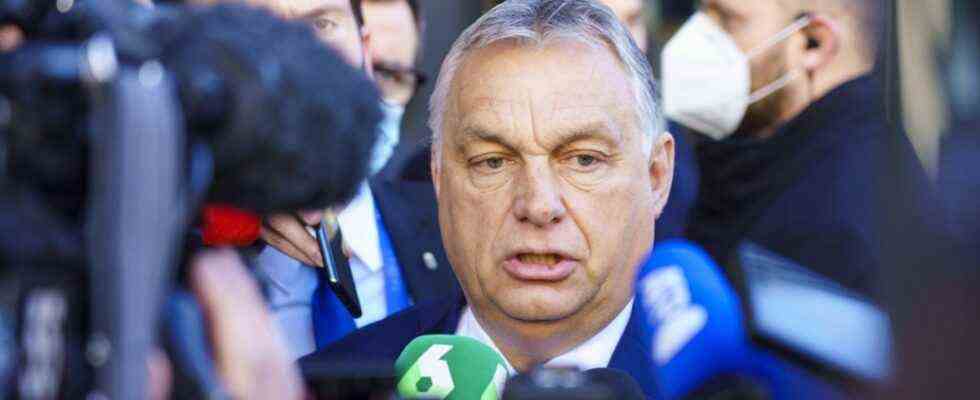Viktor Orbán has met the Russian president almost a dozen times over the past decade, sometimes in Moscow and sometimes in Budapest. This time there were two main questions that the West asked itself: if Viktor Orbán, who demonstrably maintains a good relationship with Moscow, opposed the EU with his visit, he would polarize and the already shaky Western unity in the current conflict between undermine NATO and Russia? And would Putin, for the first time in a long time, publicly comment on the massive build-up of troops on the Ukrainian border?
At the press conference after the meeting, the Hungarian held back noticeably; the matter was complicated, but a solution would certainly be found. It was Vladimir Putin who spoke at length: Russian security interests were being ignored, as were future threats. Should Ukraine join NATO and then attack Crimea, “Russian sovereign territory”, “should we then wage war against NATO?”
Before the trip, the Hungarian government had done much to fuel growing concerns in Brussels, at the EU and at NATO. After all, after gas deliveries, the expansion of the Paks nuclear power plant planned with Russian billions and Russian technology and other economic issues, Orbán announced that he would now also be talking about the European security architecture in Moscow. In his Friday radio show, he let it be known that of course he would coordinate with the allies. But Hungary is primarily interested in “balanced economic relations” with Moscow.
Hungary’s prime minister is a pity for the EU “wherever he can”
At the meeting with Putin, Orbán then said, according to the Hungarian media, that he was glad to have signed a Russian-Hungarian gas supply agreement with Moscow last fall that runs until 2036; now they want to negotiate an even larger delivery quantity. He also thanked Putin for delivering the Sputnik V corona vaccine. Hungary is the only EU country that vaccinates with the Russian vaccine. Parallel to the friendly tones in Moscow, Defense Minister Tibor Benkő spoke up in Budapest: The newspaper Magyar Nemzet he said there was no immediate danger of war. The stationing of further NATO soldiers in Hungary is rejected.
The political scientist Péter Krekó from the think tank Political Capital in Budapest called Orbán Russia’s “extended foreign policy arm in the EU” in view of his “pandering to Putin”. In fact, Orbán has repeatedly refused to sign joint EU resolutions that are critical of Moscow’s repression of civil society, for example. He criticized sanctions over the annexation of Crimea and weakened the Visegrad Group’s positions critical of Russia.
Green MEP Daniel Freund said in Brussels that Orbán’s visit to Moscow was based on “ice-cold calculations”. He is demonstrating to the EU that he is not dependent on them. Hungary’s prime minister hurts her “wherever he can”.

